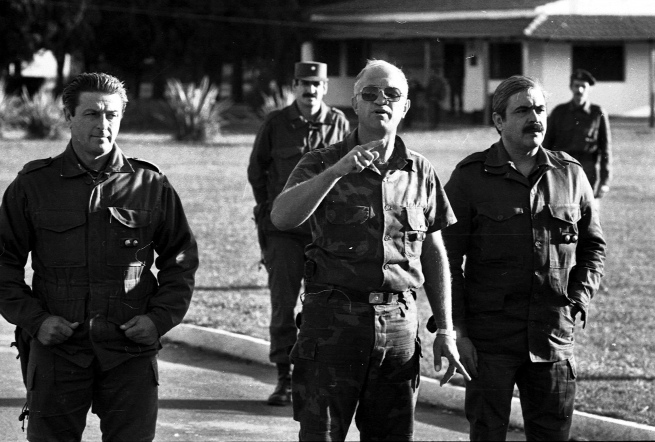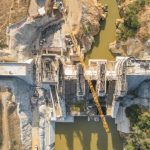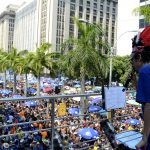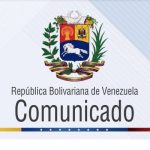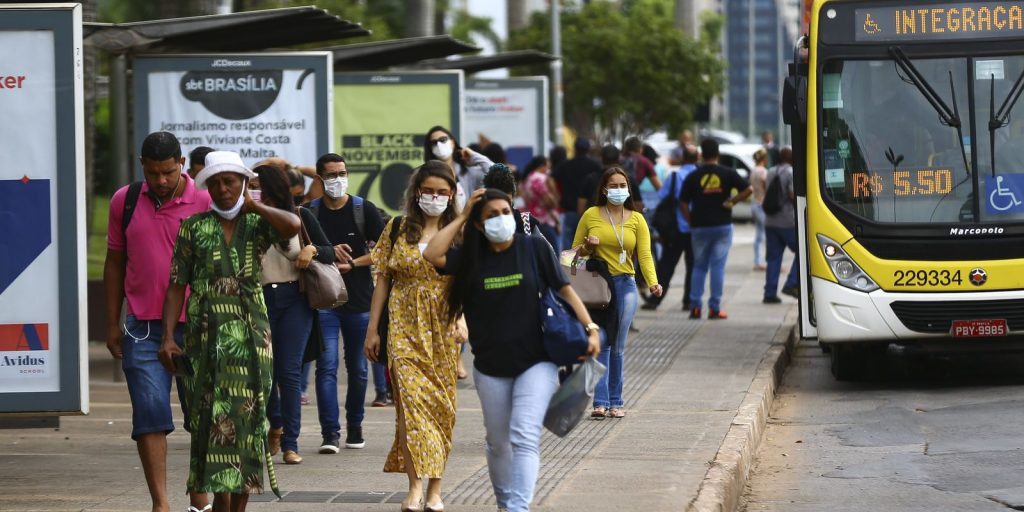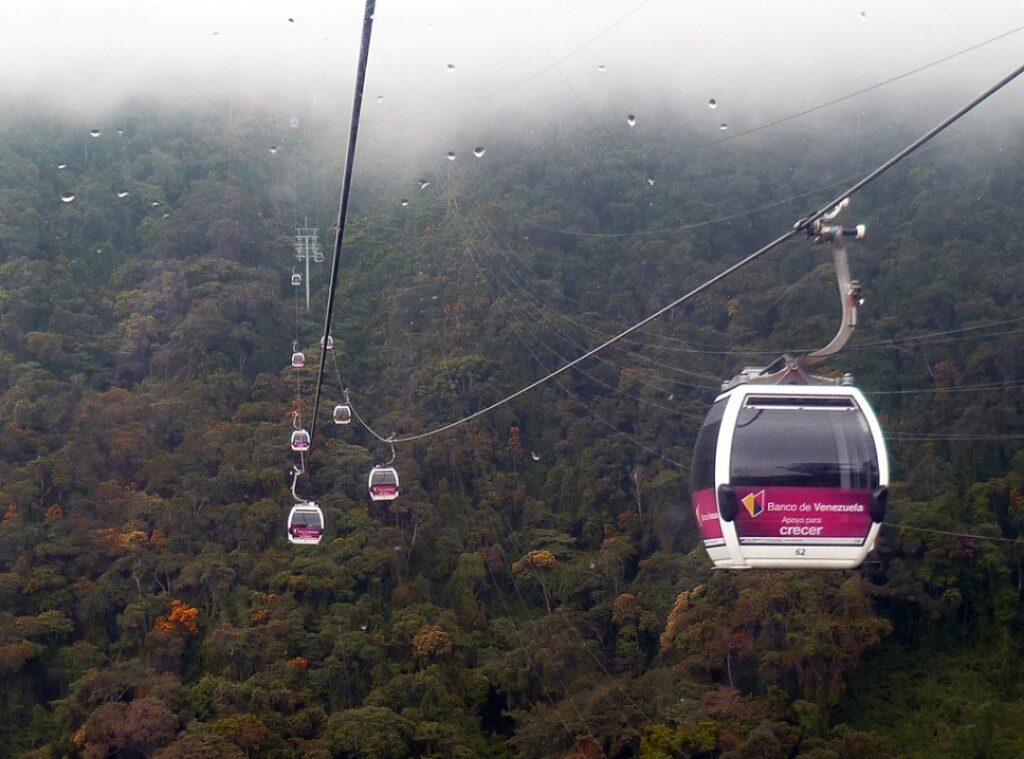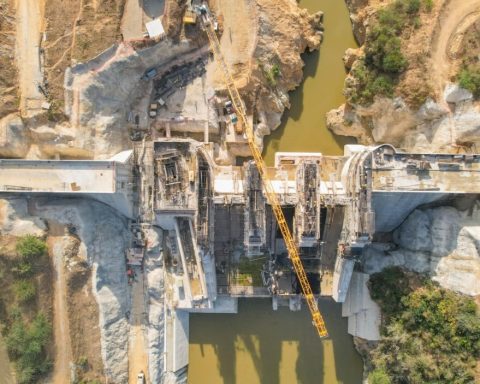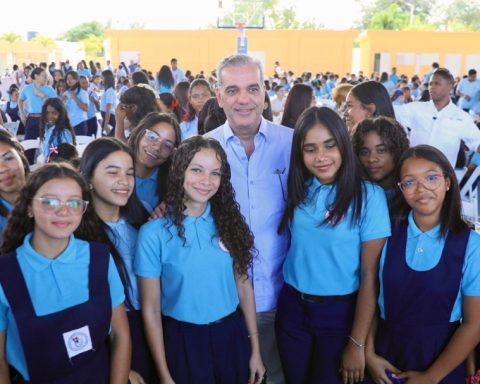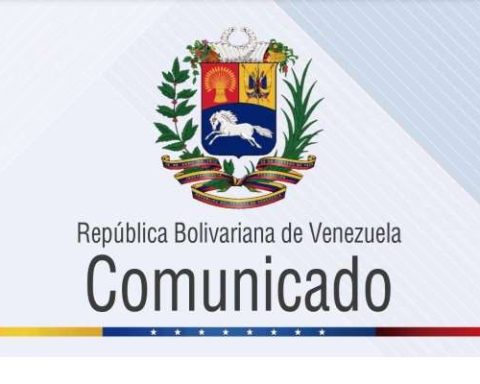This Saturday marks the 35th anniversary of the beginning of the uprising painted face of Holy Week in 1987 led by Lieutenant Colonel Aldo Ricowhich began on April 16, 1987 and lasted until Sunday 19, when the military rebels surrendered after signing an agreement with Raul Alfonsinwhich then assured the remembered phrase “The house is in order, Happy Easter”before a Plaza de Mayo packed in favor of democracy.
Less than four years after the end of the dictatorship in December 1983, a carapintada uprising once again threatened the continuity of the democratic process, which put society on edge, which came out en masse throughout the country to demand an end to the military mutiny and to support the radical government, which immediately had the support of Peronism, the CGT, the business chambers and the Church.
For more than one hundred hours, the carapintadas kept the country on edge demanding a “political solution” for hundreds of court citations against officers for the serious human rights violations.
They also requested the survey of the then military leadership because, among other things, they made it responsible for the surrender in the Malvinas War; They also demanded the end of the alleged military smear campaign that they attributed to the media, an increase in the defense budget, and that none of the participants in the uprising be sanctioned.
The beginning of the conflict had its origin two days before, when the then Major of Intelligence Ernesto ‘Nabo’ Barreirotoday sentenced to life imprisonment for crimes against humanity, refused to appear before the Federal Justice on charges of torture and murder, and along with 130 other soldiers mutinied in the Córdoba Infantry Command.

The carapintada uprising became general on April 16, when the uprising spread to other barracks in the country, the epicenter being the Campo de Mayo Infantry School, where the rebels were commanded by Rico together with Enrique Venturino, Gustavo Breide Obeid and Juan José Gómez Centuriónformer director of Customs during the administration of Mauricio Macri.
At that time, the revelations that emerged in the trials about the crimes against humanity that had been committed in the civic-military dictatorship also exposed the responsibilities of the middle ranks of the Armed Forces in State terrorism, and the carapintada uprising sought to stop that process.
The threat to the institutional order implied by the challenge with arms in hand to the authority of the President elected at the polls settled any political difference between the two main parties, Radicalism in the Government and Peronism in the opposition, whose main leaders were together and accompanied the President in defending democratic continuity.
This joint position was reflected in the arrival at the Casa Rosada, in the midst of the uprising, of deputies and high-ranking leaders of the PJ, such as Antonio Cafiero, José Luis Manzano, Carlos Grosso, Oraldo Britos and José Manuel De la Sota, who appeared together to Alfonsin.

In that context, there was popular mobilization spontaneous in different parts of the country, with a strong epicenter in the Autonomous City of Buenos Aires, where there were massive marches in Congress and Plaza de Mayo.
In a vigil historical, a recital was held with artists such as Joan Manuel Serrat, Alberto Cortés, Piero, Nito Mestre, Mercedes Sosa, Antonio Tarragó Ross, Jairo and Osvaldo Pugliese.
The popular mobilization in defense of democracy included the attempt of groups of demonstrators to enter by force the military garrison of Campo de Mayo, where Rico was with the carapintadas contingent, but that intention was stopped by Alfonsín to avoid a spill of blood.
From the gates of Campo de Mayo, the demonstrators chanted: “If you dare, we will burn down your barracks.”
With popular support and broad political and trade union backing, led by the brewer Saúl Ubaldini and the metallurgist Lorenzo Miguel, also a business and ecclesiastic, Alfonsín participated in a legislative Assembly which also had the endorsement of a massive march that filled the surrounding areas of Parliament, where sources from the time say that there were around 300 thousand people.
There, the President assured that “democracy is not negotiated” and called to “bend the arm of the coup plotters.”

At that time, a Crisis Committee was formed urgently, which functioned in the Casa Rosada and met in the office of the Secretary of the Presidency, Carlos Becerra, in Casa Rosada, with the participation of the Minister of Defense, Horacio Jaunarena; the head of the UCR caucus in Deputies, César Jaroslavsky; and the radical leaders of ‘the Coordinator’ Federico Storani, Marcelo Stubrin, Leopoldo Moreau, Enrique Nosiglia and Jesús Rodríguez, among others.
That Good Friday and Holy Saturday passed under extreme tension because the resolution was delayed, the carapintada uprising continued, the spirits of society hardened and crowds announced their intention to mobilize en masse towards Campo de Mayo.
At the same time, due to the delay and slowness to comply with orders from the civil power, it became increasingly evident that among the Armed Forces that remained loyal to the institutions there was not much willingness to repress the rebels.
The clear order from the national government, sent to General Ernest Alaiswas to intervene with his troops and tanks from Rosario’s command until the rebels gave up their attitude.
Alais, who was later tried for crimes against humanity during the dictatorship, set out from Rosario with a column of tanks, but never reached Campo de Mayo.
In this context, the resolution of the first of the four carapintada uprisings that paralyzed the country between 1987 and 1990, came on Easter Sunday when Alfonsín traveled to Campo de Mayo to demand the surrender of the rebels after having signed between all the leaders of political parties a Democratic Compromise Act at Government House.
Before a crowd in the Plaza de Mayo, Alfonsín announced his transfer to Campo de Mayo to meet with the rebels, who demanded his presence to surrender, which caused residents of the military unit and political militants to enter the area around the barracks and come within meters of the carapintadas.
In the reconstruction of that moment, it is usually remembered that the government leaders used the megaphone to ask the people to withdraw because there was a certain risk that the carapintadas would shoot and a massacre would take place.
The rebels finally surrendered to the President and at 6:07 p.m. on that Sunday, the Head of State assured from the balcony of the Government House: “Compatriots, Happy Easter. Today we can all thank God because the house is in order and there is no blood in Argentina“, announced Alfonsín, accompanied by opposition leaders.
At that time, he did not imagine that this phrase would become one of the most representative expressions of his Government.
In retrospect, the outcome of the Easter Week carapintada uprising marked the beginning of the process of sanctioning the so-called ‘impunity laws‘, by the approval in the Parliament of the laws of Final point (law 23,492) and Due Obedience (Law 23,521), the latter enacted on June 4, 1987, which prevented the prosecution or execution of sentences against perpetrators of crimes against humanity until, 16 years later, they were repealed by Congress in 2003, during the presidency by Nestor Kirchner.
